ARRIVING DECEMBER 4th!*
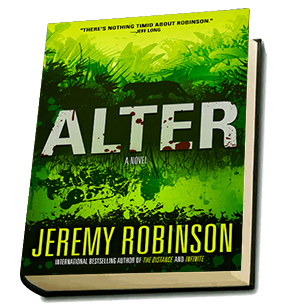
ALTER is my most mind-bending and heartfelt story since INFINITE. And like the main character of that ill-fated space adventure, Greg Zekser, a doctor from Massachusetts, finds himself alone in very unfamiliar and unfriendly territory. Unlike INFINITE, ALTER takes place in the depths of the Amazon jungle, on Earth, and is very much grounded in reality…and all its brutality. The other similarity to INFINITE is that I wrote this book while dealing with the worst effects of severe head-to-toe neuropathy, caused by a disease that might be Bartonella (stupid ticks!), and which I’m still struggling with today (it’s not as severe now). While Will suffered along with my mental anguish of the year before, Greg got a full dose of my physical discomfort, resulting in a more poignant story, as Greg and I discovered what physical suffering felt like for the first time, together.
While I’m not thrilled to have this disease, I AM thankful to be fortunate enough to channel my discomfort into something positive, the first two chapters of which can be found below.
*The audio edition will likely be out in February and is being performed by Luke Daniels.
1
A tree branch is the first thing I see upon waking. Normally, such a mundane thing wouldn’t garner a second glance, but as my eyes adjust to the shifting light around me, I focus on the twisting limb slicing through the air in front of me. The bark is smooth, as far as bark goes, like the hide of some hairless mammal. A hippo, perhaps. A few green leaves add color to its heathered gray surface.
As the branch grows larger, I stop seeing the bark and the leaves. All that remains is the limb’s kinetic potential.
A sound like screeching brakes drives home the limb’s murderous intent. The Cessna’s two pilots’ high-pitched screams reveal the state of their unpreparedness for what comes next: eternal supernatural life or nothingness. As my own scream builds, I realize I have yet to fully contemplate the issue myself. I’ve always been so focused on the plight of the here-and-now that I never really gave much thought to what comes next. Probably why I never finished that novel I started.
The branch shatters glass, its ancient strength hewing through the small plane’s metal frame.
The impact drowns out my voice.
But my fear is not just for myself. My heart aches for Gwen, who will lose her husband. And for Juniper, who is still so young she won’t be able to remember me when she’s grown.
A prayer to no particular deity flits through my mind as the sinister branch cleaves the pilots in two, popping their lungs and silencing their screams.
Take care of my family. Protect Gwen and Juni—
The end comes before I can finish.
I feel the bark on my face, its rough surface scratching, more like sandpaper than skin. And then the world bends and shifts. Light becomes oblong. Disorientation swallows me whole.
This is what it feels like to die, I think as distortion consumes me. Is this my soul slipping away? Or the last surge of chemicals numbing my mind, now that it’s been separated from my body?
Then gravity reasserts itself.
I’m still in the plane.
Still strapped into my seat.
Still looking at the branch, now just inches from my face.
The limb stopped the plane, and is now lodged inside it. My face had brushed against its surface when my forward momentum came to a sudden stop, but the branch was unable to complete its murderous mission.
I have been spared.
Warmth drips onto my face, drawing my eyes back to the branch. A line of ants, carrying leaves down the tree, have had their progress stalled by rivulets of dark red.
Blood. The pilot’s blood. It’s pouring out of his torso’s lower half, still strapped into the front seat above me. I can’t see the top half. Red and white tendrils of his insides hang down like slick vines.
Above him, through the ruined windshield, a luminous jungle canopy shimmers in hues of yellow and green, and through the leaves, the blue sky.
We’re not being held aloft by the branch. We’re hanging from it, tail down. The plane must have swung down after stopping.
I need to escape.
But I’ve never been good at climbing, or anything else remotely physical, and the door appears to be fused to the branch. If I open it…
“Focus,” I say, my voice quivering with fear. ‘Observe, deduce, formulate, and react.’ Those were the words my father often spoke to me as a home-schooled child. He was my mentor, teacher, and role model until he died. I’m not sure his personal scientific method of dealing with problems makes complete sense, but I’ve always understood the gist of it. Slow down. Think things through. Come up with a plan and see it through. If I survive, I’ll probably teach Juniper my own version of the lesson.
My attention turns to the plane’s ruined front end.
Past the branch, and the bodies, the windshield that no longer exists is my path to freedom.
Fingers fumble over metal made slick from blood. I try to ignore the gore. I’ve never seen its like before. But its surprising warmth and pungent old metal scent pokes me with white-hot reminders. When a drizzle of syrup-thick liquid traces a line across my chin and ends at the confluence of my lips, I yank to the side, but I’m held still by my restraints.
“Why can’t I get it off?” I shout to no one, and then scream and thrash, lost in a moment of abject horror.
Movement silences me and draws my eyes upward.
Like a snail emerging from its shell, the pilot’s insides curl out of his torso.
“No, no, no.” The words are spoken with a flutter.
While the branch drew a scream from my lips, the hot innards of another human being splashing across my outstretched palms, and then my body and face, sends me into convulsions. I vomit the fish from lunch into the mess, twisting and pulling and slipping through coils of what I know are intestines, despite having my eyes crushed shut.
I heave again, and this time the roar of my expulsion has a kind of doppler effect, fading into the distance as my stomach lurches up. For a moment the pressure of gravity reverses.
By the time I realize the branch is missing, the plane covers the distance to the ground. Metal shrieks along with my cough of pain, expelled by the jarring impact. As the second pilot’s insides begin stretching out for me, I’m granted mercy at last.
The plane’s front end angles forward and then falls, coming to rest at a forty-five degree angle on the forest floor, as though we’d landed—poorly.
A heavy silence fills the cabin. In it, I can hear the hiss of leaves high above, the wind sifting through them. And then, birds. And insects. And other things I can’t identify. My voice joins the living chorus a moment later, blubbering unintelligible noises as I struggle with the seat restraints again.
Slow down, some part of me drowning in blood manages to gurgle.
I turn my full attention to the buckle trapping me in a slick prison. My fingers slip over the button every time I try to press it. It was hard to remove when it was dry, a fact that had once given me assurance that it wouldn’t come undone before I wanted it to. But I had never envisioned this scenario.
Pushing with both thumbs, using equal force against each other, and down, I depress the button. With a click, the seat belt retracts.
Freedom brings fresh waves of panic. My fingers slip over the door handle three times as I groan and croak, my breaths coming in uneven gulps. When the latch finally stops fighting me, I push on the door.
Bent metal resists.
Repulsion-fueled outrage draws a scream from my throat, loud enough to once more silence the nearby wildlife, and scratch my throat.
I kick the small door hard, again and again. My bones and muscles protest, but I hammer away until the door swings open.
Like a birthing horse, I slide from the orifice, bloodied, panicked, and confused as I fall a foot to the earth. I mewl like a wounded animal, thinking nothing coherent. I just want to be held. To be comforted. To know I’m going to be safe.
But I get none of those things.
Instead, the jungle calls out, reminding me where I am, reminding me that while I’ve survived the crash, death still looms.
“Good intentions or not, the depths of that dark jungle are no place for a man of your…physical abilities,” Gwen told me upon hearing my plan to provide medical support to the tribal peoples of the Amazon. “There are plenty of people in the world that need help, including places with electricity and running water.”
Her points were valid. Are valid. I’m lanky, have poor endurance, and am prone to insomnia, but just because something is hard doesn’t mean it shouldn’t be done. We’ve led a privileged life, and will continue to do so after my three-month stint is done. Giving back to the world that’s given us so much is the right thing to do. And I believed I could have a real impact on people’s lives. Healing in the Amazon is often mixed with superstitious folklore and questionable hygiene. Modern medicine cannot just heal people, it can transform lives. Entire communities.
In hindsight, I should have listened to her, but even she couldn’t have predicted my first tour of the jungle I intended to make my temporary home would end in disaster.
Lying on my back, gore congealing on my clothing and skin, I stare up at the dancing canopy. Pinpoints of light twinkle through the endless green twilight, but I have been cut off from the sky. There’s not even a hole to mark the plane’s passage. I’ve been swallowed by a great beast, and will be slowly digested by its sweltering insides.
I roll to the side and vomit once more.
When I push myself up, stiffness—in my muscles, and from the drying blood—nearly keeps me down. Muscles quiver and spasm. Adrenaline is wearing off. Shock is setting in.
Unsteady legs hold me aloft, but I’m forced to cling to the now wingless plane. In every direction: jungle. Twisting trees. And vines. And leaf-littered ground, alive with marching ants.
I should have never come.
Don’t give in to despair, I tell myself, and I try to channel my father’s calm, problem-solving nature. “Show me the way home.”
I’ve spent less time pondering the existence of ghosts and spirits than I have a supernatural creator. My job is to prevent death, usually through prescription drugs and ointments. I don’t get paid to think about what happens when I fail.
Desperate times, I suppose.
If my father still exists in spirit form, can traverse the astral plane and hear his son’s voice, maybe he can do something to help? Impart some wisdom from beyond the grave? Maybe redirect someone’s path toward me?
Of course, if that were possible, we’d all be talking to the dead on a regular basis.
The sound of approaching feet through brush makes me flinch.
A chill runs up my back and raises the hair on my neck.
“Dad?” I whisper, glancing around like I might catch sight of his apparition.
The footsteps grow quieter, but I have no trouble zeroing in on my rescuer.
With a pounding heart, I realize that if my father’s ghost had anything to do with this, his goal isn’t to save me, but to bring about our reunion in the afterlife.
2
Like all cats, jaguars are curious creatures. Where other animals might flee from the sound of humanity, many feline species are drawn toward the unknown. And the beast of a cat eyeing me from a gap in the low-lying jungle foliage is no different.
Round yellow eyes lock on to mine, unblinking. I’ve never seen such focus. Its ears are folded back, tight like the rest of its low-to-the-ground body. It moves with such slow fluidity, it’s like watching a nature film in slow motion. I can hear the British narrator in my head, describing how the predator is about to pounce on its feeble prey, pronouncing jaguar as ‘shag-yoo-are.’ If not for the hunger in its eyes and the lack of a barrier between us, I’d find the creature beautiful. The only blemish on its sleek, perfectly made body, is a scar above its right eye.
I try to mirror the cat’s pace, stepping back, but my body quivers as adrenaline flows once more. A half step is all I make it before bumping into the plane and yelping.
The cat doesn’t flinch. I suppose it’s accustomed to hearing its prey cry out.
But why hasn’t it struck yet?
Before starting on the long path toward being a general practitioner, I was fascinated with animals and very nearly became a veterinarian. Potential income drove me toward healing people over animals, but I’ve never lost my interest in the Earth’s menagerie. I’ve never interacted with a cat larger than a Persian, but I’ve always had a sense that, at the core, all cat species have similar personalities hardwired into their DNA, making them both beautiful to behold, and deadly.
Back on the plane, when I was sure death was certain and impending, I felt less fear than I do now. I would be, and then I wouldn’t be. But this… The idea of being eaten alive has never crossed my mind.
But I won’t be alive when I’m consumed.
That’s why the jaguar hasn’t attacked.
It’s waiting for me to run. To turn my back. To provide it with a clear path to my neck, which it will grasp in its powerful jaws before breaking my spine. And if that doesn’t kill me, the cat will apply pressure until I’m suffocated.
Better than being eating alive, but still…
I risk a glance to the right.
In the moment it takes me to confirm that the plane’s door is still open, the jaguar takes three silent steps closer, its shoulders pumping like pistons. The cat’s yellow coat and paint-dab spots slide over its body, a living work of dark expressionism.
When I startle at the movement, the cat slows once more, continuing the game of life-and-death Red Light – Green Light.
I slide along the plane toward the door.
The jaguar’s eyes flare. It’s subtle, but I think it recognizes that the structure could separate it from a meal. The creature’s nose twitches as it takes in the scent of my dead pilots, whose names I can’t recall. Feeling like a jerk, I continue on my snail’s-pace path to safety.
We move in tandem, me toward the door, the jaguar toward me. I’m going to reach the door first, needing to cover just another twelve inches, while the jaguar has twice the distance in feet to cover. But that doesn’t mean I’ll be fast enough.
Catch it off guard, I think. Move before it does.
That’s my only chance.
The jaguar leaps forward, as though sensing my plan.
A high-pitched wail slips from my lips as I dive inside the plane. When I spin around and look back, intending to yank the door shut, it’s clear I won’t have time. The jaguar is nearly upon me. My hand slaps something firm. My fingers clench, and I hurl the object with a desperate roar.
The jaguar is as taken aback by my sudden about-face as I am. Doubly so, when the improvised weapon strikes its nose.
With a shrill roar and a few swipes of its extended claws, the jaguar defeats the three-pound human liver. Noting the cat’s distraction, I continue to shout, as much out of self-defense as horror, and then I set about tossing the rest of the pilot’s insides…outside.
The jaguar backtracks, confused by a prey animal that can shed internal organs at will.
Lumps of various shades of maroon slap on the rich soil, collecting dry leaves like breading. Loops of entrails thump on the ground, pasta to the meat. A human smorgasbord.
It feels wrong, offering up a man who was alive just minutes ago, as a meal. But he is dead and gone, and I am not.
It’s just meat, I tell myself, as I kick the last of the insides out through the door. Then I offer one last roar at the big cat, grasp the door handle, and slam it shut. The door bangs and bounces back open. I leap for the handle, and close it again, this time more carefully.
The cat’s eyes remain locked on mine through the window, its posture still one of attack. But I’m safe. I’m… My eyes drift to the plane’s ruined front end. There is plenty of space for the jaguar to reach the plane’s interior. But it doesn’t know that. It’s just a cat. The barrier that now separates us—from its perspective—is impenetrable. Well, it doesn’t know that yet, but it will if it tries to assault me through the window.
That doesn’t happen.
The jaguar’s tongue slides out of its mouth, wrapping around its snout before being withdrawn. There’s a moment of frozen stillness, and then…realization. It’s tasted the bloody liver residue on its nose.
Ears perk up.
The cat stands to its full height.
And for the first time since we locked eyes, its gaze turns downward.
Mouth open and panting, the jaguar surveys the bounty with which it has been provided.
“Oh, thank God,” I exhale more than speak.
The cat nudges a morsel of organ with its nose, tests the chunk with its tongue, and then snatches it up. Two quick bites and it’s gone.
I cease to exist. Predator is now oblivious to prey. The cat lies on the forest floor, content to devour its meal.
Wrapped in a humid blanket of fetid air that smells of blood and feces, I watch the jaguar eat. With each mouthful of human meat, the cat becomes more lackadaisical, subdued by a full belly. While it avoids the intestines, it plucks up one organ at a time, sometimes swallowing the meat whole, sometimes tearing away chunks.
Muzzle red with blood and stomach full, the jaguar lolls onto its side. Cats are hard to read, but it looks pleased. Looks content. If big cats didn’t sometimes kill for the sport of it, I might be tempted to step outside and pet the beast.
When the jaguar rolls onto its back, coating itself in the gore of its recent meal, I slide back from the window, hoping the creature will assume I’ve fled the scene while it ate. Slouching in the plane’s rear seat, coated in blood, I try not to weep.
Try not to scream.
Try not to move.
The smell is beyond horrible. I breathe through my mouth to dull the odor, but all that accomplishes is to remind me that strong scents can be tasted, too. I learned that lesson, standing over my first med-school cadaver. It’s been long enough that I’d forgotten. A gag threatens to overtake me and reveal my presence to the jaguar, but I manage to free a handkerchief from my pocket. While it’s not clean, it is free of blood, and helps reduce the scent, and the flavor.
Sweat trickles down my forehead. Over my sides. The jungle squeezes moisture from my body, wringing me out. There is water, and food, and clothing in the gear stowed in the plane behind me, but I dare not reach for it. Not yet. Not until I’m sure.
Hours pass. I spend the time reflecting on what I will do with my life when I’m rescued. I’d like to say I’m the kind of person who can shake off something like this and stay on mission, but that’s not what will happen. I think I’ll go home to Massachusetts, to my nice family, and double my efforts at the food pantry I started five years ago. Probably what I should have done from the start. It feels wrong, giving up before I’ve ever started, but after this I don’t think Gwen would ever forgive me for staying.
And people in need are everywhere, whether it be the Amazon jungle or the suburbs of Boston. Coming here was a mistake, and motivated by a selfish desire to be part of something that wasn’t just humanitarian, but also exotic. Something to brag about. A story to tell. The food pantry isn’t glamorous, but it feeds the hungry and maybe even saves lives. And there’s a lot I can do to improve things. Marketing expansion to improve donations. Drop off locations. Pick up locations. More volunteers. On top of seeing patients and family, there’s a lifetime of work in the pantry.
Thinking about a future in which I’m safe buoys me for a short time.
Then my thoughts turn dark.
I see myself rotting in this tepid green hell. Plants grow out from my insides. Animals gnaw on my remains. A line of hard-working ants carry away the rest.
I see my wife and daughter, sad and confused. At first, they’ll hope. But eventually, they’ll accept that I’m not coming back. They’ll move on. Without me.
I’m lost.
In the Amazon rainforest.
No one knows where I am.
I don’t even know where I am. I could have been asleep for ten minutes, or two hours. I could be an easy thirty-minute walk from civilization, or an impossible thirty-day hike. I know a lot about animals and healing people, but nothing about surviving in the wilderness I was foolish enough to believe I could make my temporary home.
Hubris brought me here. Believing I could be some kind of noble savior. In the future, I will evaluate my motivations better. How can I truly serve others if I’m also serving myself, or my ego?
Night descends slowly, and the jungle that has seemed alive during the day, blooms into a chorus of nocturnal creatures. The cacophony becomes a kind of white noise, drowning out anything distinct, as fully as the leafy canopy blots out the moon. Wrapped in a cocoon of sound and darkness, I close my eyes.
And sleep.
Upon waking, I’m greeted by the early morning’s light, a body in agony, and the unflinching gaze of death itself.
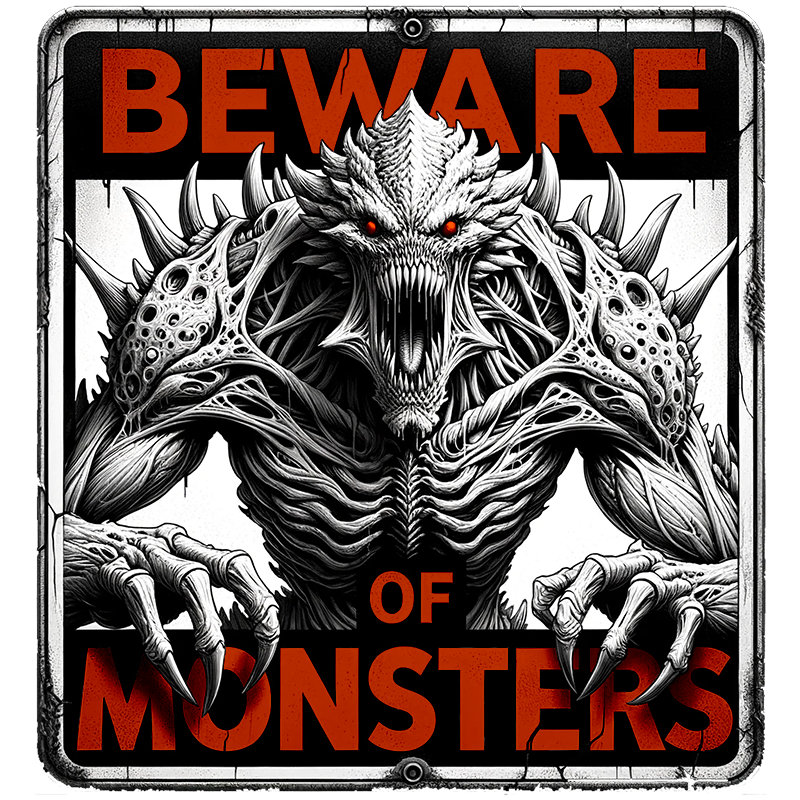
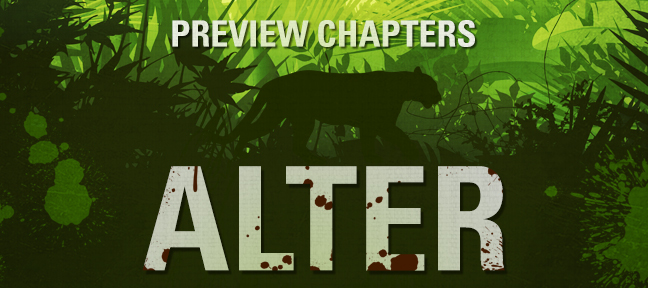

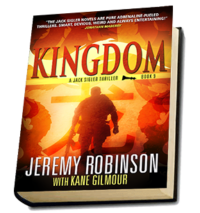
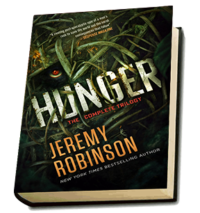
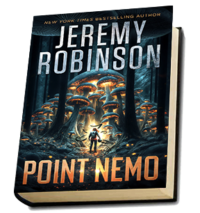
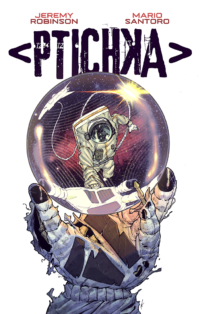
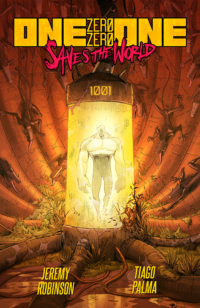
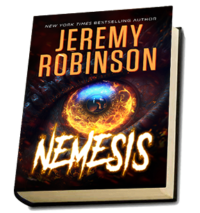
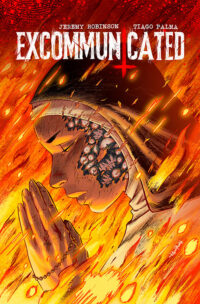
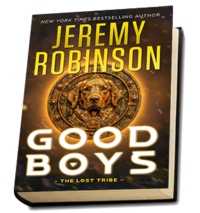
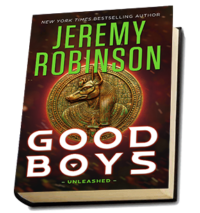
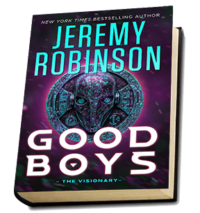
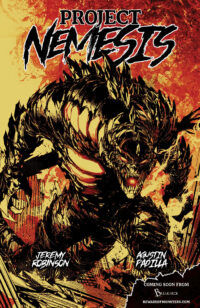
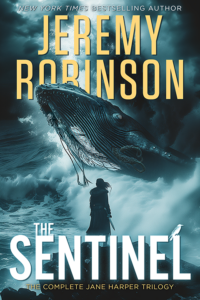
Leave a Reply